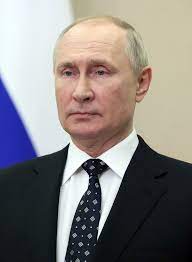
Since taking office in 2000, President Vladimir Putin has become one of the most influential and controversial leaders of our time. As the leader of one of the world’s largest nations, Putin’s policies and actions have global consequences. In this article, we will explore the life and leadership of President Putin, shedding light on his rise to power, his governing style, and his impact on Russia and the world. Leadership of Russia’s President
I. Early Life and Career
- Putin’s childhood and education
- His early career in the KGB
- Entry into politics
II. Putin’s Rise to Power
- Appointment as Prime Minister in 1999
- Succession to the presidency in 2000
- Consolidation of power through changes to the Russian Constitution
III. Governing Style
- Centralization of power
- Suppression of dissent and opposition
- Use of propaganda and state-controlled media
IV. Domestic Policies
- Economic reforms and challenges
- Social policies, including healthcare and education
- Treatment of minorities and human rights issues
V. Foreign Policy
- Relations with the United States and the West
- Ties with China and other countries
- Conflicts with neighboring countries, including Ukraine and Georgia
VI. Legacy and Impact
- Putin’s enduring popularity in Russia
- The impact of Putin’s policies on the Russian economy and society
- The global consequences of Putin’s leadership, including the annexation of Crimea and interference in foreign elections
As we have seen, President Putin has had a profound impact on Russia and the world. While his leadership has been marked by controversies and challenges, his enduring popularity in Russia suggests that his influence is likely to continue for years to come. Understanding Putin’s life, career, and policies is essential for anyone interested in Russian politics and global affairs.
Since taking office in 2000, President Vladimir Putin has become one of the most influential and controversial leaders of our time. As the leader of one of the world’s largest nations, Putin’s policies and actions have global consequences. In this article, we will explore the life and leadership of President Putin, shedding light on his rise to power, his governing style, and his impact on Russia and the world. Leadership of Russia’s President
I. Early Life and Career
- Putin’s childhood and education
- His early career in the KGB
- Entry into politics
II. Putin’s Rise to Power
- Appointment as Prime Minister in 1999
- Succession to the presidency in 2000
- Consolidation of power through changes to the Russian Constitution
III. Governing Style
- Centralization of power
- Suppression of dissent and opposition
- Use of propaganda and state-controlled media
IV. Domestic Policies
- Economic reforms and challenges
- Social policies, including healthcare and education
- Treatment of minorities and human rights issues
V. Foreign Policy
- Relations with the United States and the West
- Ties with China and other countries
- Conflicts with neighboring countries, including Ukraine and Georgia
VI. Legacy and Impact
- Putin’s enduring popularity in Russia
- The impact of Putin’s policies on the Russian economy and society
- The global consequences of Putin’s leadership, including the annexation of Crimea and interference in foreign elections
As we have seen, President Putin has had a profound impact on Russia and the world. While his leadership has been marked by controversies and challenges, his enduring popularity in Russia suggests that his influence is likely to continue for years to come. Understanding Putin’s life, career, and policies is essential for anyone interested in Russian politics and global affairs.





